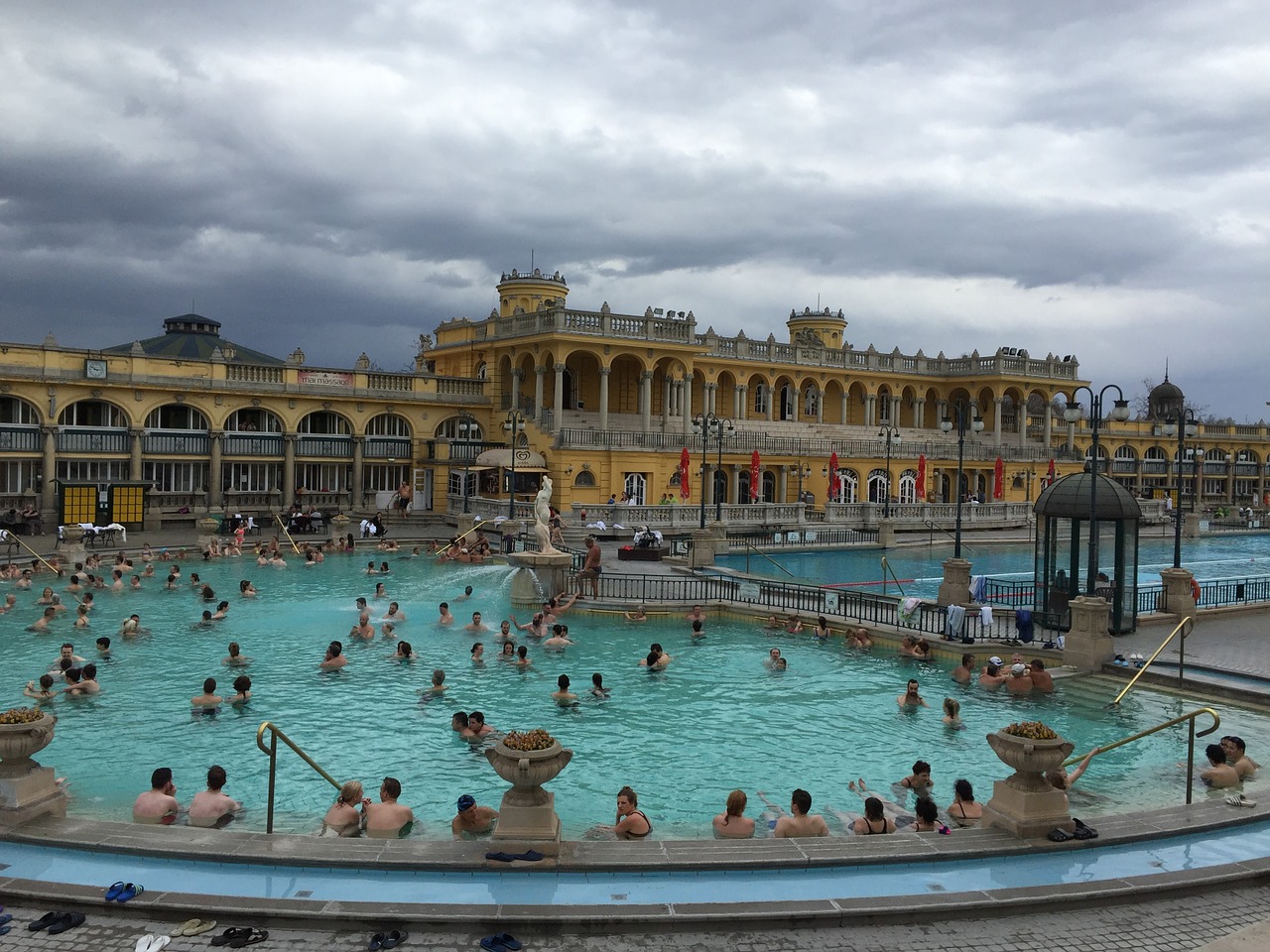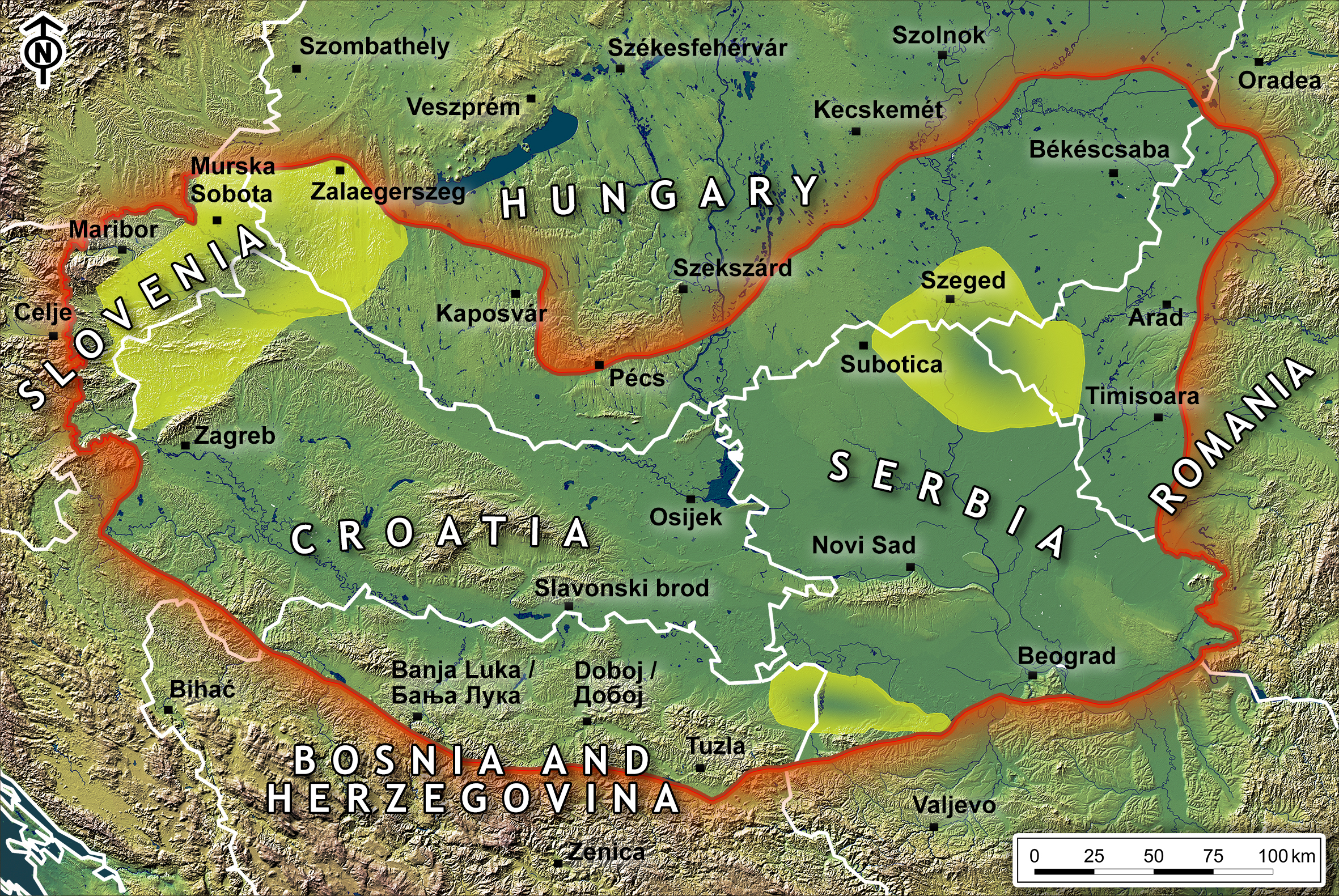DARLINGe - Harnessing untapped potential of geothermal energy
22-09-2021
Among the alternatives to fossil fuels, geothermal energy is one of the most promising, offering clean, reliable and safe energy for power production and heating. Due to high startup costs, however, geothermal energy use in the Danube region remains limited. DARLINGe project aims to change it by enhancing the use of geothermal resources in the heating sector.
August 5, 2021

The Pannonian Basin, extending across nine countries in Central and Eastern Europe, is well-known for its good geothermal potential due to its favourable geological conditions. Geothermal water has been known and used here in thermal baths since Roman times but a more systematic exploration and exploitation began only in the 19th century. Nowadays, bathing and balneology without any energy use is the most common type of thermal water use in the Danube region. Developing deep geothermal projects for energy utilization is considered risky due to the high upfront cost of drilling, coupled with a great uncertainty at the early stage of exploration. What can be done to make large-scale use of geothermal resources in the Danube region more attractive?
Transnational collaboration towards goethermal projects
The DARLINGe project aimed to enhance the efficient use of deep and still untapped regional geothermal resources going beyond the balneology of thermal springs. Based on a comprehensive analysis of the state-of-play of geothermal energy utilization in the project area covering about 95,000 km2, a joint transnational strategy was developed, creating an integrated transnational approach to the supply of geothermal energy in the heating sector.
To advance collaboration and facilitate exchange of ideas, as well as to raise the awareness of policy and decision makers on the advantages of geothermal energy, especially as a real option for the decarbonisation of the heating sector, Danube Region Geothermal Information Platform was established. It serves as a one-stop shop with several online tools helping local communities to find information about local deep geothermal resources and to decide on the suitability of geothermal projects. The platform also provides a step-by-step support to geothermal project developers, from the identification of potential geothermal reservoirs in the Danube region through various stages of exploration, licensing, development and operation of the geothermal projects.
 DARLINGe project area (red contour) with 3 cross-border pilot areas (light green). Image: DARLINGe
DARLINGe project area (red contour) with 3 cross-border pilot areas (light green). Image: DARLINGe
Geothermal energy in the district heating of Szeged
The application of the methods and tools developed by the project was tested in three cross-border pilot areas. Szeged, a city of 162,593 inhabitants on the Hungarian–Serbian–Romanian border, was of them. The city and its vicinity have favourable geothermal conditions and traditions of using thermal water in spas. However, the sole energy-source of the local municipally-owned district heating company is imported natural gas.
In 2015 the Szeged City Hall hired professionals from the Institute of Geology and Geography of the University of Szeged to initiate the integration of renewables – especially geothermal energy – into the city’s district heating system. In the long and delicate project development phase the assistance of the DARLINGe consortium has been instrumental. An in-depth heat market analysis was carried out based on the methodology developed in DARLINGe, and with that the investors and stakeholders were able to calculate the exact energy demand as well as the economics of the planned projects.
This was matched with a site specific reservoir assessment to determine the highest possible yield and temperature of the water to be extracted. This assessment confirmed that the application of geothermal energy was definitely a viable option. Then, once again with the assistance of the DARLINGe consortium, a detailed feasibility study was conducted, based on which the Municipality of Szeged, the management of the district heating company, and the private investors decided to submit an application for EU funding in order to proceed with the project.
“Geothermal projects are not only expensive, they are complex too. It requires a wide range of expertise just to consider whether geothermal is an option for a municipality, let alone to start implementing it in reality. I’ve seen many decision-makers shy away from geothermal developments due to the complexity and risk attached to them.”
Dr. Gábor Bozsó, Head of the Operations Department at SZETÁV, the municipally-owned District Heating Company of Szeged
Video: DARLINGe
